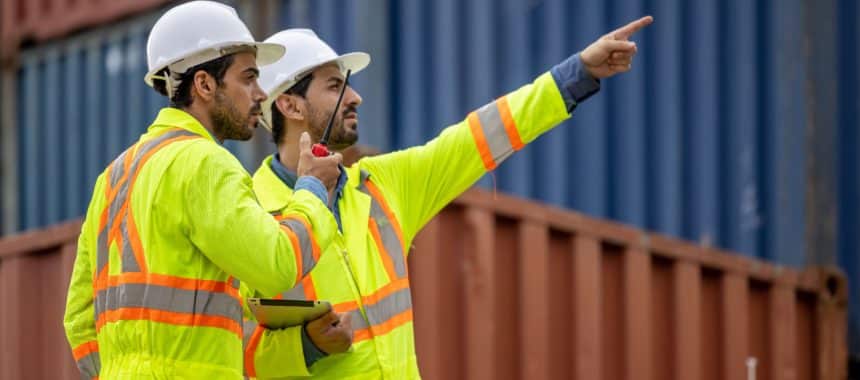Understanding FELA: Protecting the Rights of Dock and Railroad Workers
Dock and railroad workers are essential to keeping the country’s transportation systems running. However, they often face hazardous working conditions, which can lead to serious injuries. If you’re a dock or railroad worker, understanding the Federal Employers Liability Act (FELA) is critical. FELA allows injured workers to seek compensation when their employer’s negligence causes an accident. Whether you’re loading cargo or maintaining railcars, this blog will help you understand your rights under FELA and how McManes Law can assist with your claim.
What is FELA?
The Federal Employers Liability Act (FELA) was enacted in 1908 to protect railroad workers and ensure they are fairly compensated if injured on the job. FELA allows workers to file lawsuits against their employer when negligence is involved. Unlike traditional workers’ compensation claims, FELA claims require the injured worker to prove that the employer’s negligence contributed to the injury.
FELA applies to all employees in the railroad industry, including those working on docks and performing related duties such as loading, unloading, and maintaining trains.
FELA vs. Workers’ Compensation
It’s important to understand the difference between FELA claims and traditional workers’ compensation:
- Proving Negligence: In a workers’ compensation claim, employees are compensated regardless of fault. With FELA, workers must prove that the employer’s negligence contributed to their injury.
- Higher Compensation: FELA offers more comprehensive compensation, including medical expenses, lost wages, and damages for pain and suffering. Workers can also claim compensation for future medical needs or permanent disabilities.
- Lawsuits: FELA allows workers to sue their employer directly, potentially leading to larger settlements than those typically seen in workers’ compensation claims.
How FELA Protects Dock and Railroad Workers
Working conditions on the railroad and docks can be dangerous. FELA provides vital protections for dock and railroad workers, particularly in cases involving employer negligence. Examples of negligence include:
- Unsafe work environments: Poorly maintained equipment, unsafe docks, or hazardous surfaces increase the likelihood of injuries.
- Defective equipment: Workers often handle heavy machinery. Defective or improperly maintained equipment can lead to serious injuries, and under FELA, employers are responsible for maintaining safe equipment.
- Inadequate training: Dock and railroad workers need thorough training to handle cargo and machinery safely. Lack of proper training can be considered employer negligence under FELA.
- Failure to enforce safety protocols: Employers are required to adhere to safety regulations. Ignoring these regulations can make them liable under FELA if an injury occurs.
Common Injuries Covered by FELA
Injuries sustained by dock and railroad workers often vary in severity. Some of the most common injuries covered by FELA include:
- Back and neck injuries: Lifting heavy cargo or equipment often results in back and neck injuries.
- Head injuries: Falls, equipment malfunctions, and other accidents can cause traumatic brain injuries (TBI).
- Repetitive stress injuries: Constant use of the same muscles and joints can cause carpal tunnel syndrome or other repetitive motion injuries.
- Burns and electrocution: Dock and railroad workers are at risk for burns or electrocution when dealing with heavy machinery and electrical equipment.
- Exposure to chemicals: Prolonged exposure to hazardous chemicals, such as diesel fumes, can result in long-term respiratory or skin issues.
Steps to Filing a FELA Claim
Filing a FELA claim can be complex, but the following steps will help ensure your rights are protected:
- Report the injury immediately: It is essential to report your injury to a supervisor and ensure it is documented.
- Seek medical attention: Even if the injury seems minor, you should always get a medical evaluation. This will provide important evidence in your claim.
- Gather evidence: Collect evidence, such as photos, witness statements, and medical records, that can prove employer negligence.
- Consult a FELA attorney: Consult with an experienced FELA attorney to help navigate the complexities of your claim and ensure you receive fair compensation.
How McManes Law Can Help with Your FELA Claim
At McManes Law, we specialize in representing injured dock and railroad workers under FELA. We understand the nuances of proving employer negligence and will fight to ensure you receive the compensation you deserve. Our team will work with you to gather evidence, negotiate settlements, or take your case to court if necessary.
If you or a loved one has been injured while working in the railroad or dock industry, contact us today for a free consultation and let us help you navigate your FELA claim.
Protect Your Rights with McManes Law
Working in the railroad industry involves serious risks, but FELA ensures that you have a legal pathway to compensation if your injury is caused by negligence. Don’t wait— contact McManes Law today to discuss your legal options and get the justice you deserve.

